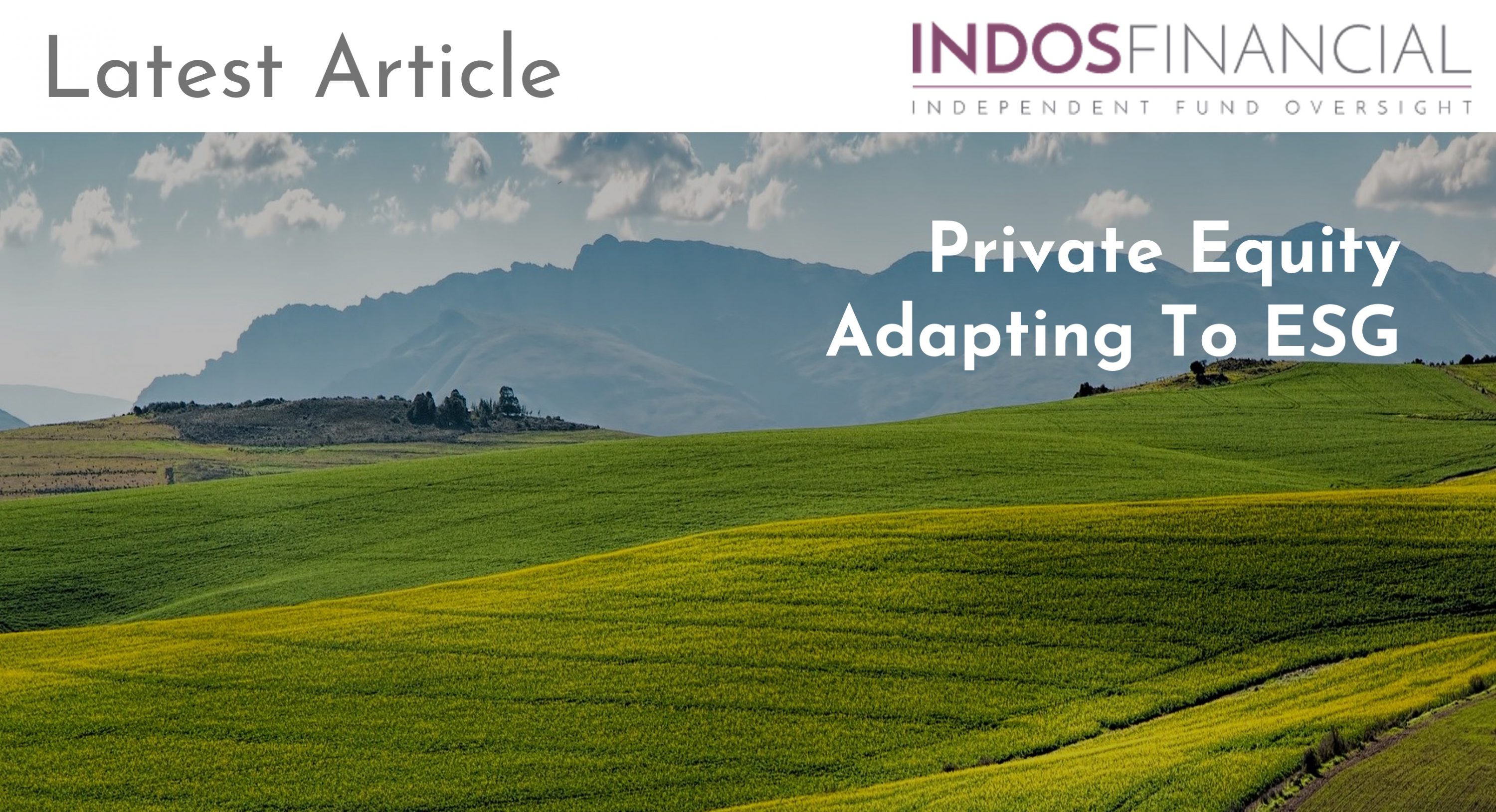Although limited partners (LPs) have historically exercised less pressure on private equity managers to integrate ESG (environment, social, governance) into their portfolio choices than say – for example – public equities or real estate firms,[1] this is slowly changing. INDOS Financial attended Super Return International in Berlin last month, where it discovered the private equity industry is becoming increasingly receptive to the principle of ESG investing.
GPs embrace ESG
Until recently, private equity managers were not entirely convinced by the merits of ESG investing, seeing it as something that could potentially impede returns. This has largely been disproven. For example, the University of Hamburg found 63% of studies indicated there was a largely positive correlation between ESG investing and returns, while only 8% said the contrary. [2] Aside from the commercial advantages of incorporating ESG, investors at Super Return made it clear that a failure to take it seriously opened managers up to various risks.
Among them is stranded asset risk, whereby managers are left holding assets whose value has been eroded by a failure to adapt to climate change. For institutions with long-term liabilities such as pension funds and insurance companies, this is an unacceptable risk, especially in light of the recent PG&E bankruptcy, the world’s first climate change related insolvency. For instance, ATP, the $133 billion Danish pension plan said earlier this month it would stop putting money into external funds – namely private equity and credit funds – which have investments in fossil fuels, citing stranded asset risk as being its overriding concern.[3]
Other pension funds have made similar pledges to rein in their exposures to fossil fuels, including ABP in The Netherlands. With more investors appointing sustainability heads, ESG is now an integral part of the fund manager due diligence process. However, one LP told Super Return that it was not an automatic red flag if a private equity firm is invested in a non-ESG company, conscious that some firms may be behind the curve. However, the LP said they will fail managers on due diligence grounds if they are reluctant to have an ongoing, constructive dialogue about ESG with clients.
The role of governance in ESG
Traditional asset managers – as we saw at Fund Forum International last year – acknowledged that ESG can be exceptionally subjective in public markets, a problem not helped by the abundance of different ESG methodologies at ratings agencies; divergent investor sensibilities; and the sheer volume of industry standards. One expert said the situation is more complicated in private markets where access to information – not least ESG data – is far more limited. Private equity – arguably – is therefore more susceptible to greenwashing than public markets, and this is something investors must be vigilant about.
Proposals including the taxonomy and reporting guidelines as envisaged under the EU’s Action Plan on Sustainable Finance could help solve some of these challenges, but there is unlikely to be wider regulatory standardisation. Moreover, the EU’s proposals are primarily focused on the environmental criteria of ESG as opposed to the social elements, which are notoriously difficult to quantify because the calculations are more subjective. While ESG data standards are critical for assuaging investors, independent ESG oversight/monitoring will become an increasingly important aspect of fund governance. Such oversight will be critical to ensuring that private equity firms are compliant with their ESG mandates and do not greenwash their portfolios.
[1] Bain & Co (February 24, 2020) Investing with impact: Today’s ESG mandate in private equity
[2] Bain & Co (February 24, 2020) Investing with impact: Today’s ESG mandate in private equity
[3] Reuters (February 4, 2020) Danish pension provider ATP to halt fossil fuel investments via external funds




